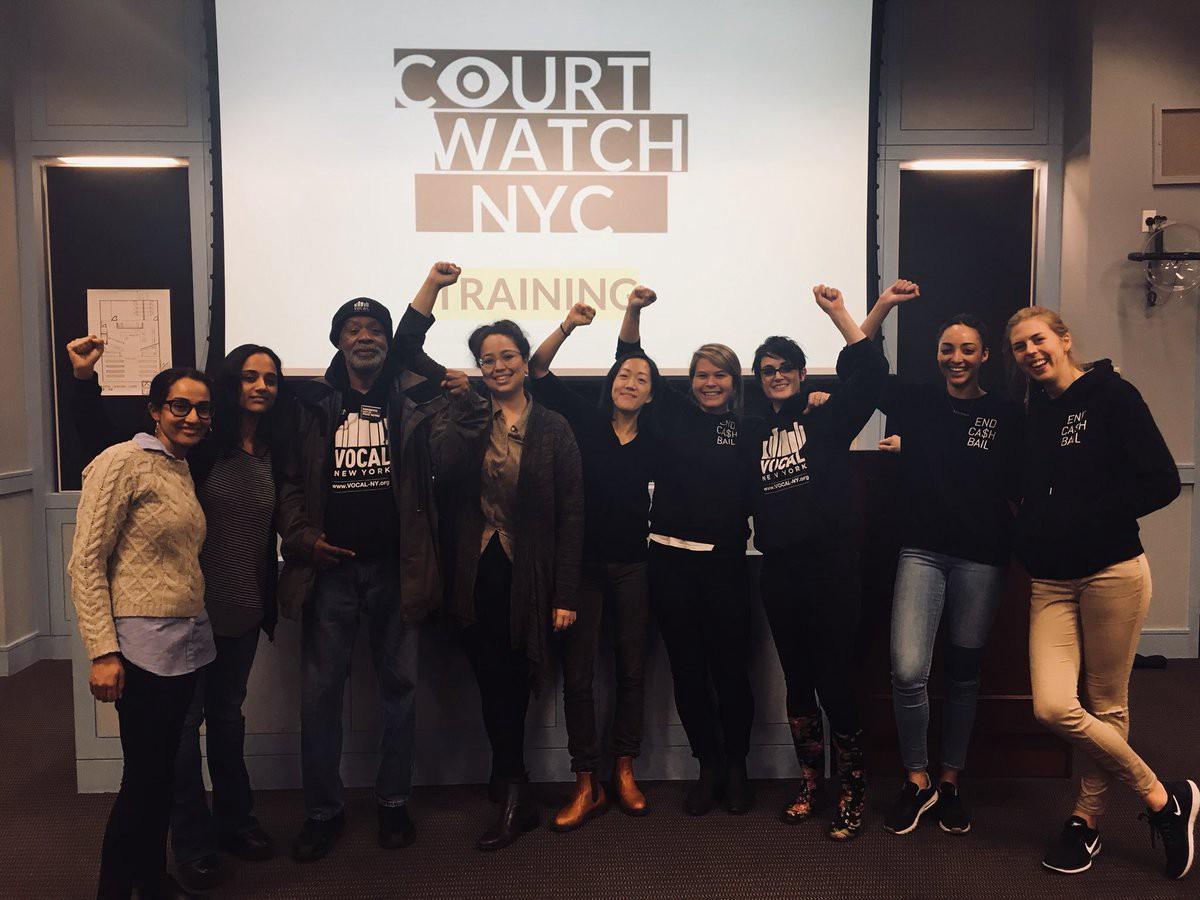Court Watch NYC Is Here To Hold New York City’s ‘Reformer’ District Attorneys Accountable
As the conversation about criminal justice reform increasingly focuses on the nation’s broken bail system, prosecutors across the country have announced new policies that purportedly aim to keep low-income people from being denied their freedom simply because they can’t afford to pay bail. In New York City, Brooklyn District Attorney Eric Gonzalez and Manhattan District Attorney […]

As the conversation about criminal justice reform increasingly focuses on the nation’s broken bail system, prosecutors across the country have announced new policies that purportedly aim to keep low-income people from being denied their freedom simply because they can’t afford to pay bail.
In New York City, Brooklyn District Attorney Eric Gonzalez and Manhattan District Attorney Cyrus Vance recently announced reforms that would limit requests for bail when people are arrested for some nonviolent offenses. The media has rapturously greeted these announcements with headlines that allow the prosecutors to portray themselves as part of the solution to America’s incarceration crisis.
But following the announcements by the district attorneys, public defenders saw little to no change in the actual practice of prosecutors, who were still requesting bail on the exact crimes they had explicitly pledged not to. When pressed, the prosecutors’ offices replied that they’re indeed asking for bail less often, but have so far released no data to back up their claim. In addition, many of the new policies include carve-outs for people on parole, people who have been arrested in the past, and those who have had other interactions with the criminal justice system. So, the very people most likely to be arrested in New York City are also the ones who would be the most likely to be held on bail.
Enter Court Watch NYC, a new project that’s officially launching today, which aims to hold “reformer” prosecutors accountable, and to get as many people as possible to sit in on arraignments, where bail determinations are made. These hearings have an outsized impact on whether people who get arrested can keep their jobs, reunite with their family, or stay in school. If bail is set, they can sit in jail for weeks, months, or years awaiting trial simply because they can’t afford it.
“There are so many caveats to these policies,” said Alyssa Aguilera, co-executive director of VOCAL-NY, one of the organizations behind Court Watch NYC, “that they’re not having as much of an impact as they should, and it’s our job to make sure that they’re actually impactful and achieving their intended goals.” The other two organizations behind Court Watch NYC are the Brooklyn Community Bail Fund, which raises money to pay bail for low-income defendants while advocating for the abolition of cash bail, and 5 Boro Defenders, a coalition of public defenders in New York City organizing around injustices in the legal system.
Before its official launch today, Court Watch NYC in January began training “courtwatchers,” who have already sat in on arraignments in Manhattan and Brooklyn, taking note of when prosecutors request bail, the charge the person was arrested for, and other information such as the defendants’ language skills and who was representing them.
So far, the project has trained over 150 “courtwatchers,” who can sign up for shifts to sit in on arraignments in the two boroughs. Court Watch NYC organizers hope that knowing observers are present in the courtroom might encourage judges and prosecutors to change how they set bail. “We know that by putting these people who are electing them into the actual courtroom … it can shift power and court practices in that very specific case,” said Rachel Foran, managing director of the Brooklyn Community Bail Fund. “That power shift is going to change the way that justice is meted out on a day-to-day basis.”
The project takes inspiration from court-watching initiatives like Court Watch NOLA, Participatory Defense in California, and the Chicago Community Bond Fund. Another court-watching project in New York City, the Police Reform Organizing Project, focuses on racial disparities in arrests made by the NYPD.
Court Watch NYC plans to share its findings in weekly reports on its website, and will release the data it collects from its watchers. While the reports and data will be helpful in keeping prosecutors accountable, the organizers behind the project say the most important part of Court Watch NYC will be getting more New Yorkers to see how the court system functions, and whether true reform is actually occurring in the courtroom.
“The data is important, but it’s not our end goal,” said Foran. “The project is about community engagement and continual participation in the system and opening an avenue for people to have that engagement.”
